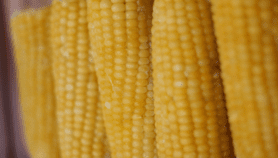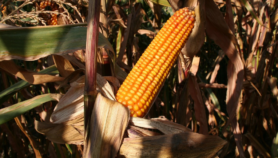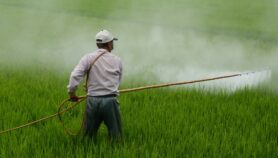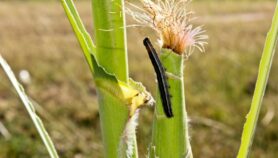28/07/16
Simple innovation changing farmers’ fortunes
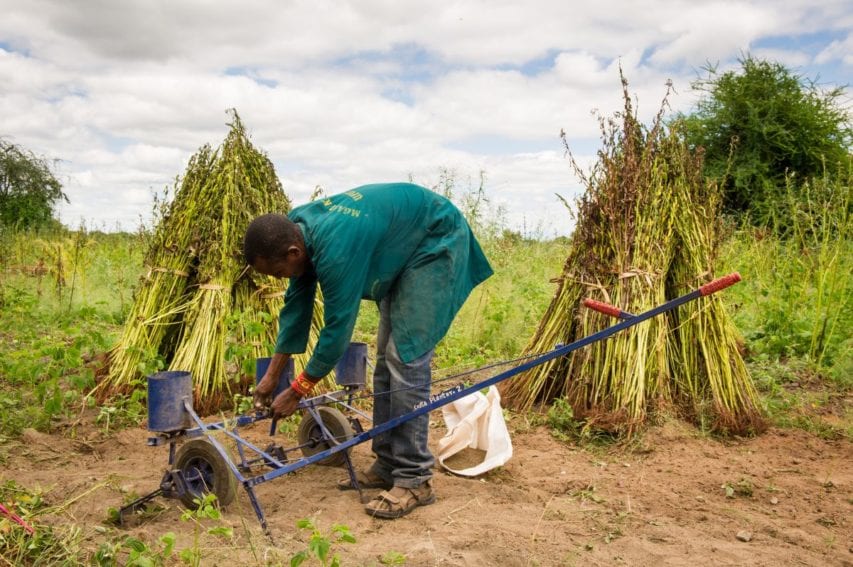
Constantine Martin, a farmer from Babati District in northern Tanzania pouring seeds into hand-pushed planting machine dubbed “coasta planter” he invented that enables easy sesame seeds planting
Farm Africa
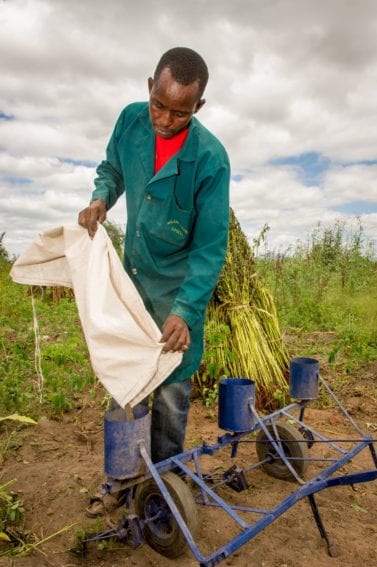


Martin is demonstrating how seeds are added to the coasta planter in readiness for sowing in the farm
Farm Africa
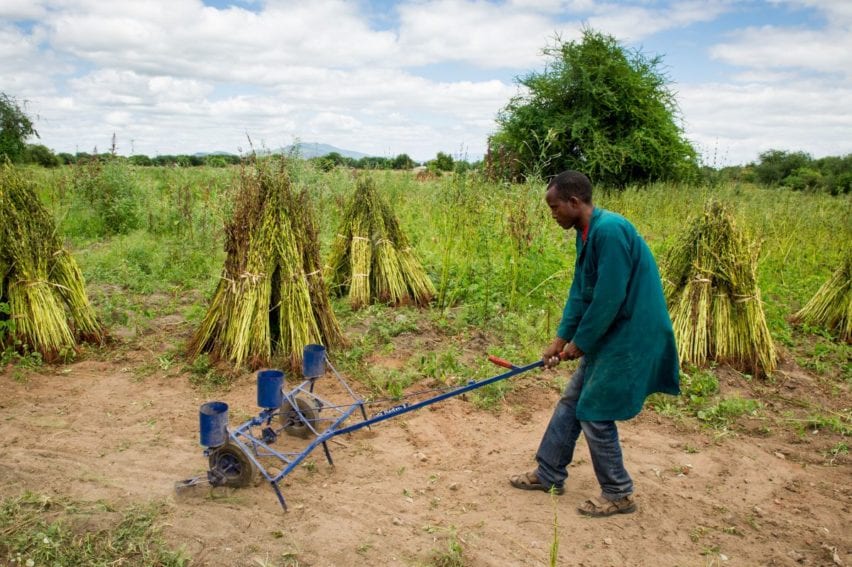


After the seeds have been poured into the round metal holders mounted atop the wheeled coasta planter, it is pulled on the ground and thus disseminates the seeds
Farm Africa



A sesame farmer trained on sesame planting techniques such as spatial management, pesticide selection, application and timings for weeding tending to her crops
Farm Africa
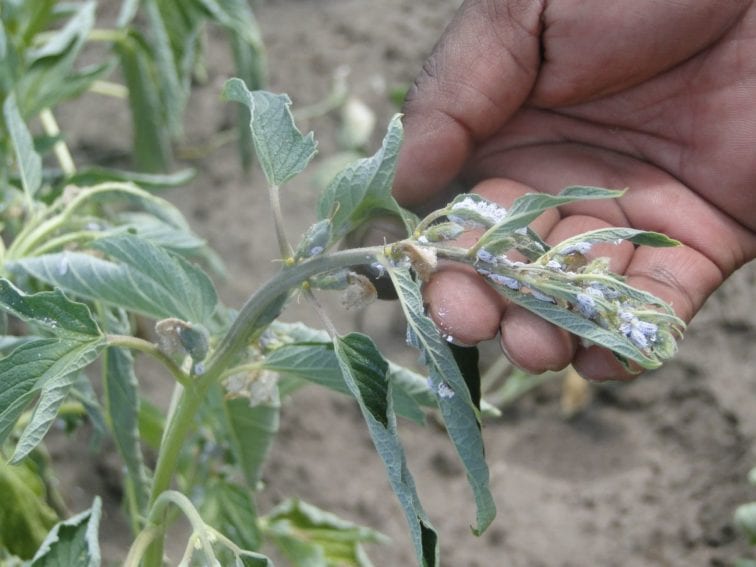


The farmers are however faced with serious mealybug pest that destroys the crop during growth stages affecting yields
Farm Africa
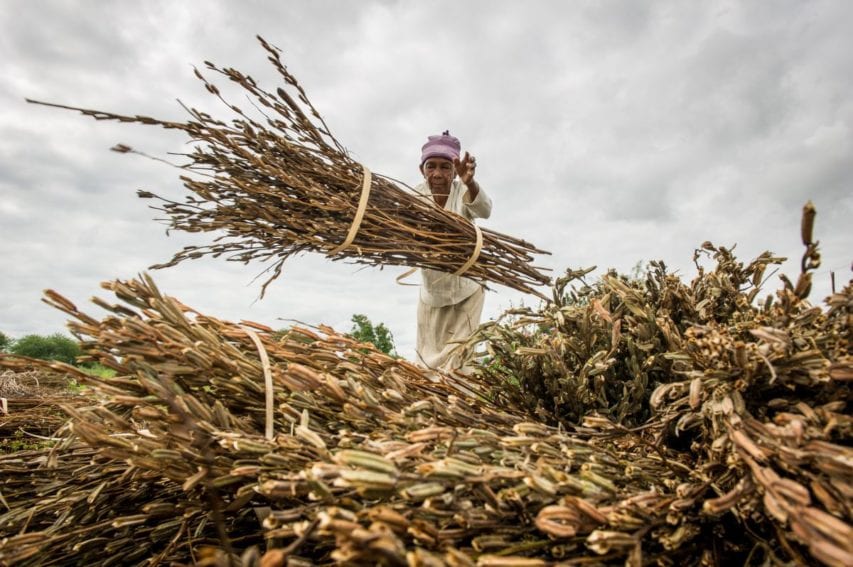


Once the crops have reached maturity, farmers cut and tie them in bundles and harvesting commences leading to production of edible nutritious seeds
Farm Africa
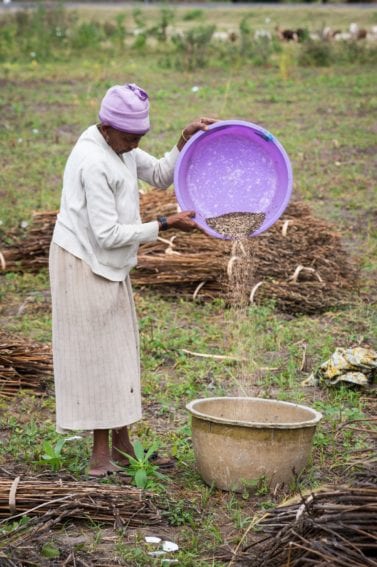


The seeds are separated from the chaff, a work mostly done by female members in sesame growing areas
Farm Africa
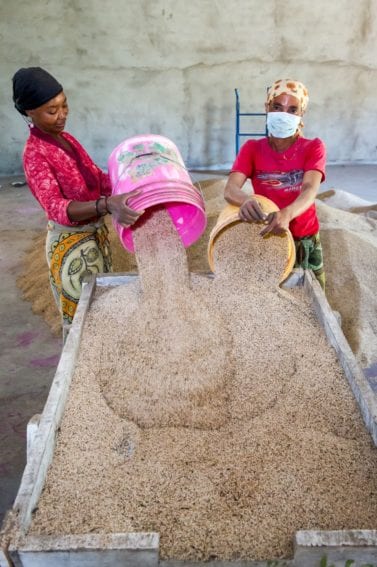


Women clean sesame seeds prior to bagging at Farm Africa established warehouse in Babati District in northern Tanzania
Farm Africa
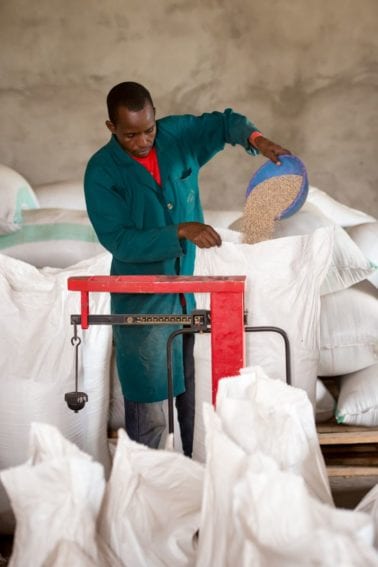


After cleaning, the sesame seeds are weighed and packed into bags at a warehouse cooperative set up by Farm Africa
Farm Africa
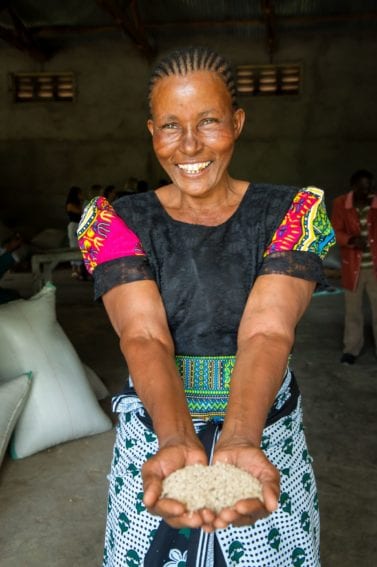


Broad smile: a female farmer smiling while holding the fruits of her labour that offer earnings and livelihoods for many smallholder families
Farm Africa
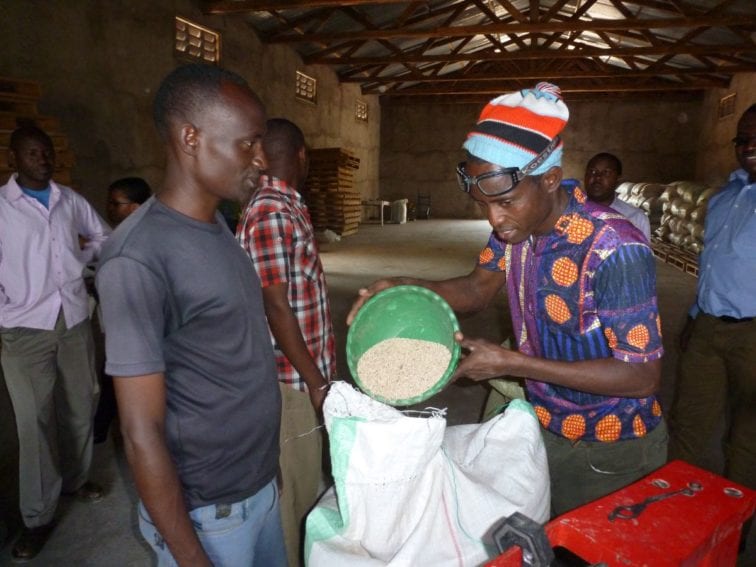


Aggregation of sesame seeds at warehouse started with 51 members in 2011. The warehouse cooperative set up by Farm Africa now has 284 members with the interest growing fast and expected to reach over 900
Farm Africa
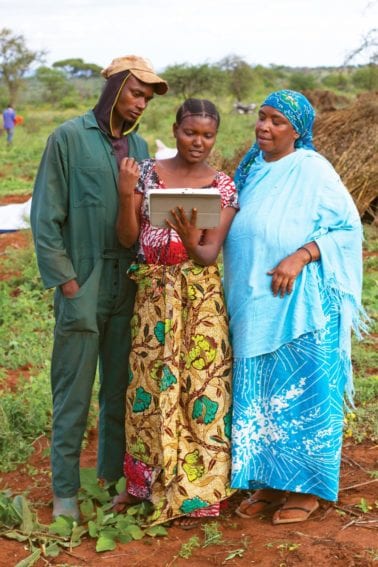


The power of ICT: One of the farmers trained by Farm Africa is using a tablet computer to train others farmers in growing improved sesame in Tanzania
Farm Africa
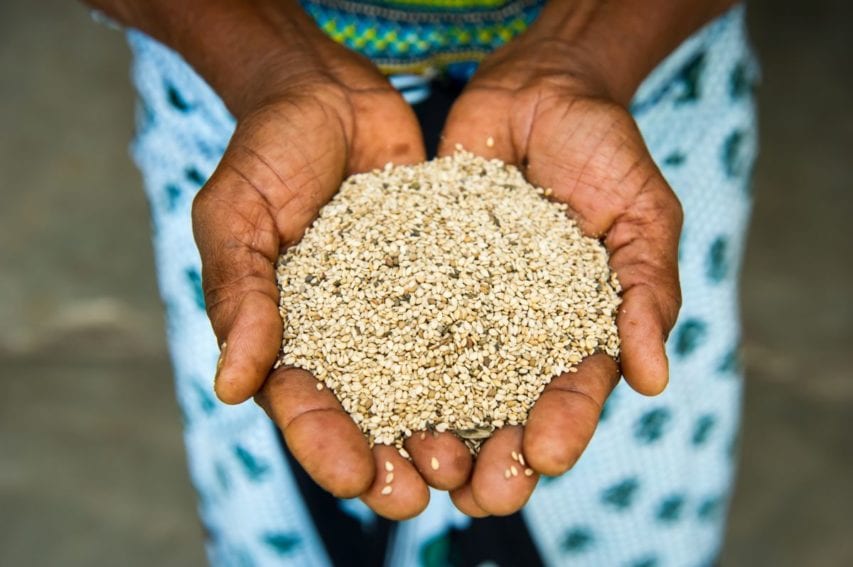


A harvest of sesame seeds is offering many families a rich source of nutrition for many households in Tanzania
Farm Africa
By: Baraka Rateng’
Send to a friend
The details you provide on this page will not be used to send unsolicited email, and will not be sold to a 3rd party. See privacy policy.
Smallholder farmers in Tanzania are increasingly taking to sesame farming because of its drought resistant qualities. It is more resilient climate change related impacts.
Constantine Martin, a primary school leaver, who hails from Babati District in northern Tanzania has invented a simple and cost-effective machine that makes it easier to plant sesame seeds.
Martin, 42, began developing his invention after receiving training in modern sesame farming by a London-based international development charity, Farm Africa, which helps farmers grow more, sell more and sell for more.
The hand-pushed planting machine dubbed ‘Coasta Planter’ makes the planting of sesame seeds easier and upscale production.
Sesame farming in Tanzania has traditionally been by hand, a tough, tedious and time consuming work where farmers dig individual holes a few centimetres deep for each seed, then go back and forth along their plots dropping seeds. It also causes back pain.
He saw this gap and developed the technology now being adopted by many farmers.
Martin says: “Sesame is a drought-resistant crop and many farmers were encouraged to get into this kind of farming but the challenge was on how to plant the sesame seeds, which are very small.”
“I used to farm sesame using outdated farming practices, which didn’t transform my income and livelihood. Planting was [a] tedious job as my wife and I had to go back and forth in our five acre plot, which meant we had to walk more than 20km,” adds Martin who is a member of one of Farm Africa’s co-operatives that brings members together to negotiate better prices for their crops, and gain access to improved seed varieties, inputs and training.
Martin’s entrepreneurial skills has increased his income since 2009 from about UK£95 (US$124) to UK£1888 (US$1,437) a year. He has expanded his business, farming 3.5 acres in 2016 up from one acre in 2013. Also, he has purchased 16 goats, nine cattle, and 34 improved chickens, and plans to begin fish farming. Martin has also set up a small food and drinks business for his wife, and plans his own agro-mechanisation company.
Farm Africa officer, Tumaini Elibariki, explains that they train and teach farmers about technical processes and test different technologies. “I also link local communities with researchers. I find out what is being developed and I share with our farmers.”
Martin is one of Farm Africa champion farmers Elibariki took with a group to visit a research institution. “After that Martin developed the idea of welding a stick with three metal prongs so farmers could create three planting lines at a time, reducing the time it takes to sew a field by two thirds.”
“He further developed his invention so that as well as creating three lines where the sesame can be planted, it now has three holders where the farmer adds a combination of seeds with sand. Every 15 centimetres a small amount of mixture drops into the furrow and then the Coasta Planter covers it with soil,” Elibariki tells SciDev.Net.Martin says: “I share what I have learnt with others and so far have provided training for almost 500 farmers. I also manufacture and sell my planter and those who cannot afford to buy hire one. Up to now around 1200 farmers are using my rake planter and about 90 are using the Costa Planter.”








